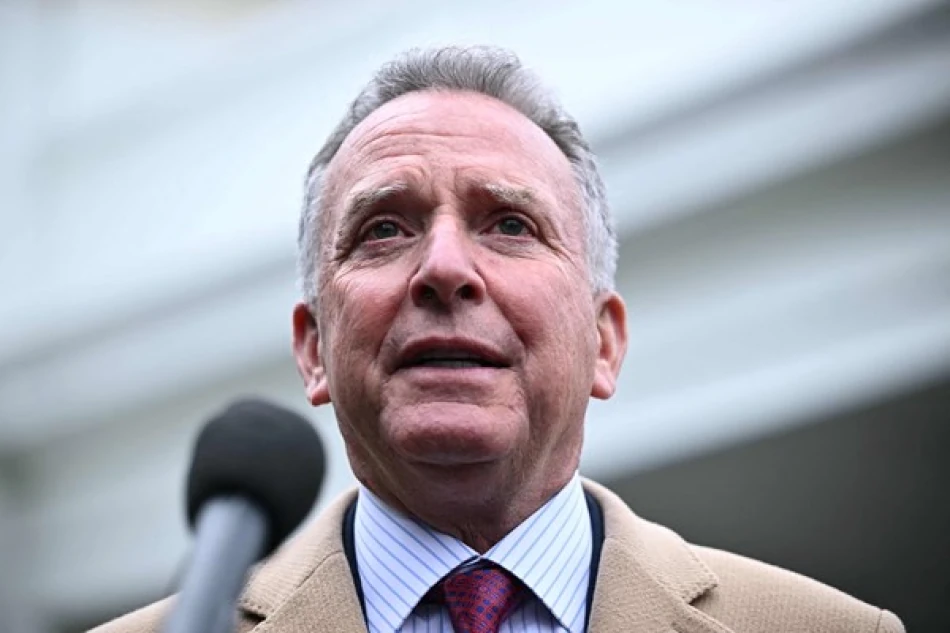
US Special Envoy Wendy Sherman Visits Moscow to Discuss Bilateral Tensions
Trump's Ultimatum Diplomacy: Special Envoy Heads to Moscow as Friday Deadline Looms
President Donald Trump's special envoy Steve Witkoff is traveling to Moscow Wednesday for high-level meetings with Russian leadership, as the administration's Friday deadline for ending the Ukraine offensive approaches. The diplomatic mission comes amid Trump's threat of additional economic penalties, marking a critical juncture in the new administration's approach to the nearly three-year conflict.
High-Stakes Diplomacy Under Pressure
Witkoff's Moscow visit represents Trump's most direct diplomatic engagement with Russia since taking office. While the real estate mogul-turned-envoy has met with President Vladimir Putin multiple times previously, this trip carries unprecedented urgency given Trump's public ultimatum issued earlier this week.
The timing signals Trump's intention to leverage economic pressure alongside diplomatic outreach—a strategy that differs markedly from the Biden administration's approach of sustained military aid to Ukraine coupled with broad international sanctions coalitions.
Economic Weapons on the Table
Trump has specifically mentioned imposing "secondary tariffs" if Russia fails to comply by Friday, though the White House has remained deliberately vague about implementation details. This ambiguity appears tactical, leaving Moscow to guess at the scope and severity of potential economic retaliation.
Secondary tariffs typically target third-party countries or entities that continue trading with sanctioned nations, potentially affecting China, India, and other major Russian trading partners. Such measures could significantly expand the economic pressure beyond existing sanctions frameworks established during the Biden era.
A Familiar Playbook with New Stakes
Trump's deadline-driven negotiation style mirrors his first-term approach to trade disputes with China and diplomatic pressure campaigns against North Korea. However, the Ukraine conflict presents far greater complexity, involving NATO allies, European energy security, and fundamental questions about post-Cold War territorial boundaries.
When pressed by reporters about Russia's options for avoiding penalties, Trump's response was characteristically direct: "Yes, reach a deal that stops people from being killed." This framing suggests the administration views any ceasefire agreement—regardless of territorial concessions—as preferable to continued warfare.
Market and Geopolitical Implications
Financial markets are closely watching for signs of escalation or de-escalation, particularly in energy and defense sectors. Russian assets have shown volatility this week, while European natural gas futures remain sensitive to any hints of policy shifts that could affect energy flows.
The diplomatic gambit also tests Trump's relationship with European allies, many of whom have invested heavily in Ukraine's defense and may view premature negotiations as legitimizing Russian territorial gains. This tension could affect NATO cohesion and transatlantic economic cooperation.
The Friday Test
Whether Putin will respond to Trump's ultimatum remains uncertain, but the Friday deadline creates a concrete moment of accountability for the new administration's foreign policy approach. Success could establish Trump's credibility as a dealmaker on the global stage, while failure might force a choice between escalating economic pressure or appearing ineffective.
The outcome will likely influence how other adversaries—particularly China regarding Taiwan—perceive American resolve and negotiating tactics under the Trump administration's second term.
Most Viewed News

 Layla Al Mansoori
Layla Al Mansoori






